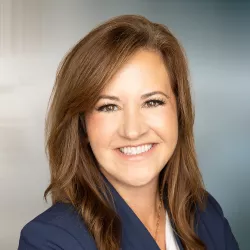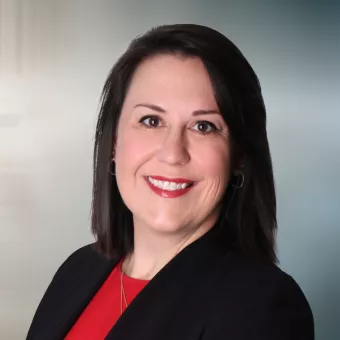
Case Overview
Sexual abuse on college and university campuses is, unfortunately, common. Survivors of this abuse have legal rights and may be able to hold the institutions, colleges and universities liable for the harm they’ve experienced. Our lawyers can represent and support survivors of sexual abuse in their pursuit of civil justice.
Key takeaways about sexual abuse on campus
- Sexual abuse on college and university campuses can involve peers, faculty or staff. It may occur in dorms, classrooms, or other school-affiliated settings.
- Colleges and universities may be held legally responsible if they fail to prevent or respond to abuse.
- Survivors have legal options, including civil claims, Title IX complaints, and the potential of extended filing deadlines under lookback window laws.
- Motley Rice has a depth of experience litigating complex civil litigation, holding organizations or well-connected individuals accountable for their wrongdoing. Please note, Motley Rice is a civil law firm and cannot pursue criminal charges against the perpetrator.
Understanding sexual assault on college campuses
Sexual assault on college and university campuses is a serious issue that can affect all students. It’s important to understand what constitutes sexual assault and abuse, especially within the unique social dynamics of an academic setting. In general:
- Sexual assault is classified as any non-consensual sexual act or behavior. This type of assault includes rape, forced sexual acts and unwanted sexual touching.
- Sexual abuse is when a victim is pressured or threatened to engage in a sexual act or is not able to consent to the act.
With larger groups of people living in condensed areas like college campuses, there may be more opportunities for sexual assault and abuse to occur. Assaults can happen anywhere, including dormitories, homes, on-campus parties/events, classrooms, fraternities, gyms, athletic facilities, libraries, sporting events, etc.
Campus sexual assault statistics
The Higher Education Sexual Misconduct and Awareness (HESMA) 2024 survey analyzed data from 10 private U.S. universities. The survey found alarming trends in campus sexual violence:
- 40.2% of female students reported non-consensual sexual contact in residence halls.
- 8.4% of these students reported assaults in fraternity houses.
- 24.1% of them said the assault happened in other collegiate housing.
- Alcohol was a key factor to most instances of sexual assault.
- Another study found that LGBTQIA+ students faced higher risks of sexual assault on campus.
Despite this survey reporting declining numbers of incidents, critics have questioned whether these declines reflect true safety improvements or are a function of underreporting. Experts say many students do not file formal reports out of fear of retaliation, social pressure or lack of trust in campus systems. Thus, the actual number of on-campus sexual assaults could be much higher than statistics reflect.
How colleges and universities may be liable for sexual abuse
Colleges and universities are required by law to take steps to prevent and respond to sexual abuse and harassment. However, many institutions have failed in this duty. Schools may be found liable if they:
- Dismiss or mishandle abuse reports
- Do not take reasonable steps to prevent known risks (e.g., failure to remove a known perpetrator from campus)
- Fail to provide adequate safety measures, such as security or monitoring, at known high-risk locations
- Retaliate against students who file complaints
In these cases, victims may bring legal claims against schools for negligence, civil rights violations or failure to comply with federal law.
Pursuing legal action if you’ve been sexually abused on campus
Survivors of campus sexual abuse may pursue legal action through both civil and administrative channels. These options are designed to hold perpetrators and enabling institutions accountable and to help survivors recover damages for the harm they’ve suffered.
One path is to file a civil sexual abuse lawsuit. This type of legal action allows survivors to seek compensation from the individual perpetrator, the college or university, or others who may have enabled or ignored the abuse. Depending on the facts of the case, survivors may bring claims for:
- Negligence
- Negligent retention and hiring
- Vicarious liability
- Intentional infliction of emotional distress
- Negligent infliction of emotional distress
- Premises liability
- Failure to warn
- Failure to supervise, train, or oversee
- Civil rights violations under Title IX or similar statutes
In many cases, schools are named as defendants for failing to prevent abuse, failing to act on prior complaints, or allowing a hostile environment to persist.
Other available options include:
- Submitting a report under the Clery Act, which mandates crime reporting and victim support
- Submit a complaint under the U.S. Department of Education’s Office for Civil Rights (OCR)
- Reporting to local law enforcement, which may result in criminal prosecution
It’s important to act quickly. Statutes of limitations for civil sexual abuse lawsuits vary depending on the jurisdiction, the type of claim and the age of the survivor at the time of the abuse. Some states have enacted lookback window laws, allowing survivors to file claims even if the original deadline has passed.
How campus sexual abuse lawyers can help
Campus sexual abuse cases are deeply personal and often complex. A campus sexual abuse lawyer can help survivors navigate their legal options and advocate for justice. Motley Rice lawyers support clients by:
- Offering confidential, trauma-informed consultations
- Compiling evidence and building strong legal claims
- Identifying responsible parties, including institutions
- Navigating Title IX and civil court processes
- Pursuing the maximum compensation available
Our attorneys take every step to empower survivors while protecting their privacy.
Resources for sexual abuse survivors
Survivors of sexual abuse on campus have access to local and national resources that provide crisis intervention, emotional support, and legal guidance:
- Rape, Abuse & Incest National Network (RAINN): Visit the website for resources or call the 24/7 National Sexual Assault Hotline at 800.656.HOPE
- National Sexual Violence Resource Center (NSVRC): Offers educational tools and trauma resources
- End Rape on Campus: Focuses on student advocacy and legal support
- Clery Center: Guidance on campus safety rights and reporting
- Campus counseling centers: Most schools offer confidential mental health support at little or no cost
- Title IX Coordinators: Assist students in filing complaints and obtaining accommodations
Frequently asked questions on sexual abuse on campus
Can a college be held legally responsible for sexual abuse on campus?
Yes. Colleges may be held responsible if they knew about abuse or risks and failed to act. This includes ignoring complaints, covering up misconduct, or failing to protect students from known perpetrators.
What legal options are available to student victims of campus sexual assault?
Legal options may include filing a Title IX complaint, reporting the incident under the Clery Act, pursuing criminal charges, or bringing a civil lawsuit against the responsible parties.
Why should I pursue a private sexual abuse claim?
Private attorneys work for you. Having your own representation allows you to work with someone with your interests as a top priority. Investigators assigned by universities may have conflicts of interest that could prevent you from getting the full justice you deserve.
How much can survivors receive in campus sexual assault compensation?
No amount of compensation can undo the harm that was done to you on your college or university campus. However, the remedy the law allows under the civil justice system is one of financial compensation. Compensation varies based on the facts of the case. Factors may include the extent of harm, institutional negligence, and jurisdiction. A campus sexual abuse lawyer can help you assess the full scope of potential damages.
Our experience advocating for sexual abuse victims
Motley Rice has represented survivors of sexual abuse in institutional settings, including schools, youth organizations, and religious organizations. Our legal team understands the trauma survivors face and works tirelessly to hold powerful entities accountable for their role in enabling abuse and get survivors the justice they deserve.
We’ve represented:
- Survivors of sexual abuse in the Boy Scouts of America, helping clients file claims and navigate the organization’s bankruptcy process
- Students abused by junior high and high school teachers, including recent lawsuits against educators accused of long-term misconduct
- Individuals seeking justice under newly enacted lookback window laws, which provide survivors the opportunity to file claims previously barred by expired statutes of limitations
Our team has experience working with complex litigation involving multiple defendants, institutional coverups, and widespread patterns of abuse. We take a trauma-informed approach to every case, prioritizing survivor privacy and emotional well-being throughout the legal process.
Key takeaways
Understanding sexual assault on college campuses
How colleges and universities may be liable for sexual abuse
Pursuing legal action if you’ve been sexually abused on campus
Resources for sexual abuse survivors
Frequently asked questions on sexual abuse on campus
Our experience advocating for sexual abuse victims
- Sources
- Charlie Health. Sexual Assault Statistics. 2024 Sexual Assault Statistics | Charlie Health.
- Inside Higher Ed. Where Is the Data on Campus Sexual Assault?
- National Sexual Violence Resource Center. Let’s Talk: Definitions of Terms | National Sexual Violence Resource Center (NSVRC).
- RAINN. Campus Sexual Violence: Statistics | RAINN.
- U.S. Department of Health and Human Services. Sex-Based Harassment | HHS.gov.
- Westat. Report on the 2024 Higher Education Sexual Misconduct and Awareness Survey.
Start Your Motley Rice Consultation in Simple Steps
Submit Information
Call us or fill out our online form with the details of your potential case.
Case Review
Our team reviews your information to assess your potential case.
Case Consultation
Talk with us about next steps.



